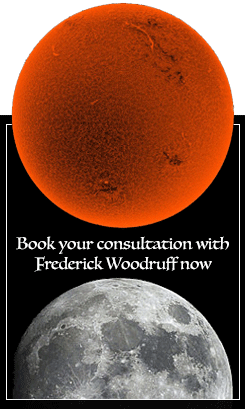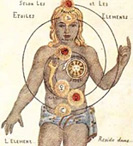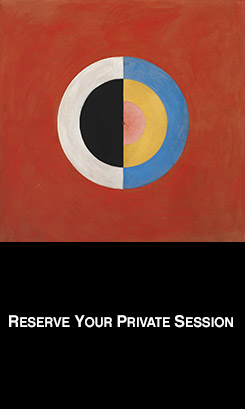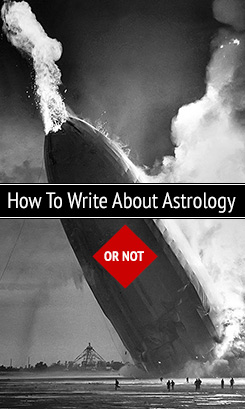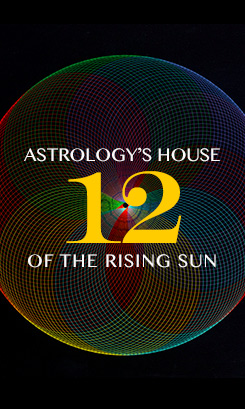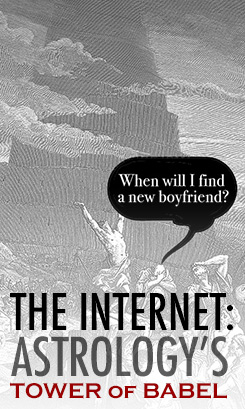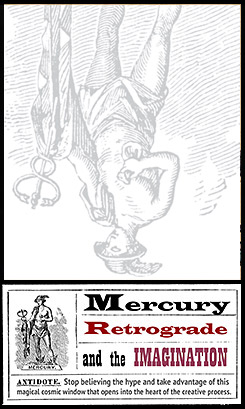July 2009 Solar Eclipse: Welcome to the Bardo’s Edge
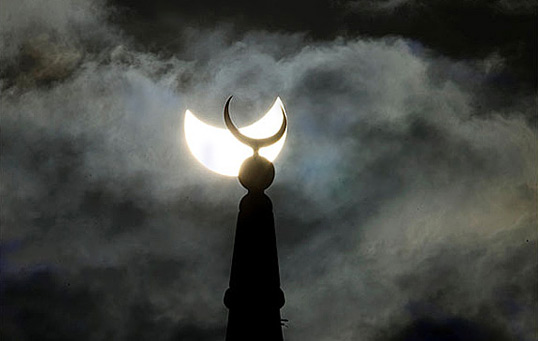
Wednesday’s New Moon is a tipping point solar eclipse. Its duration, nearly seven minutes long, makes it the longest eclipse of the 21st century. There’s a particular potency to any celestial gathering around the last degrees of any zodiacal sign, and today’s lunation hits, exactly, the cusp between Cancer and Leo. A mysterious zone indeed.
This is a segment of time akin to the moments prior to a pregnant woman’s labor. Full-to-bursting, when the baby is ready to roll, the mother taps into an instinctual process that carries her along until the birth is complete. She can’t do it with her mind — surrender is implicit. You could say today’s eclipse atmosphere is charged with a persistent pressure to relax, release and welcome the unknown. A process is underway, geared to undo our grip on the familiar — but only if we’re willing to forgo expectations and preferences.
More than ushering in something new, this eclipse highlights the manner in which we surrender our concepts about the future. The opportunity? To test a new expression of trust and not allow the past to crowd out open-ended potentialities. To understand more clearly, study the two signs involved. What does the cusp between two signs signify? It’s a mysterious zone, yes? A stunning demarcation between one world and another. Read more
The Longest Eclipse of the 21st Century
I’ll be posting on this eclipse tomorrow. A veritable gateway eclipse, showing the biosphere to be mutating into something akin to the Tibetan bardo. In the meantime, thank you C.I.A.:
Bonus: Also, don’t miss these animated eclipse maps by graphic artist Larry Koehn.
The 40th Anniversary of the Moon Landing
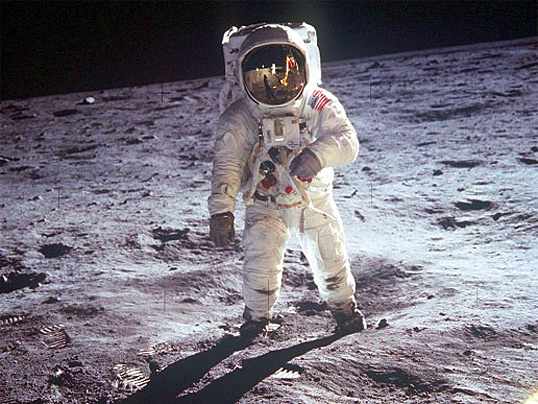
“What about the existential whiplash that comes from being on the moon one week and in your living room the next — and having to find your own way to process the vast gulf between those two worlds? “I remember coming back to Houston after the moon, and my neighbors had a barbecue for me,†Dave Scott, commander of Apollo 15, told me. “I thought, ‘What am I doing here?’ ”
From Time magazine’s excellent: Moon Walkers: The 40th Anniversary of the Moon Landing
Bonus: Google Moon. Explore the six missions of the Apollo Program, which lasted from 1963 to 1972.
The Jupiter Neptune Conjunction and “Other”

I’m back from a long, extremely hot, nine-day Ridhwan retreat on Maui. Believe it or not, I had a hard time uprooting myself from Vashon to head to the Valley Isle. Summer was just beginning to bloom in Washington, and folks who live here know that when summer starts displaying the goods, you gotta savor each golden day. Still, I made it to Hawai’i.
The retreat’s theme, the material presented, was incredibly challenging to articulate, and once again I’m in awe of the teachers’ focus and presence. Guidance on the subject of absence can easily devolve into acid trip-like meanderings (ask anyone that’s ever attended a bad Buddhist retreat on the subject). But our teachers’ transmission was crystalline, palpable and impacted me in a profoundly deep way.
This is all part and parcel of the process of the attempts to understand absence. The mind can’t absorb and hold on to the concept of emptiness because the observed and the perception of what is observed (in absence) are one and the same — there is no mind present, weighing and touching and parceling reality into familiar boxes. In fact ‘you’ aren’t even there to ‘have’ the experience — and yet there is the moment. So you can see the mindfuck of the whole subject.
But rather than ramble any further I’ll shift gears and go to a segment of one of Mary Oliver‘s poems, What Is There Beyond Knowing? — one of my favorites. Poetry being a fine way to trace the mind’s finger against the outline of emptiness (which is the best the mind can do — poor thing). Read more
Like A Virgin: Touched for the Very Last Time
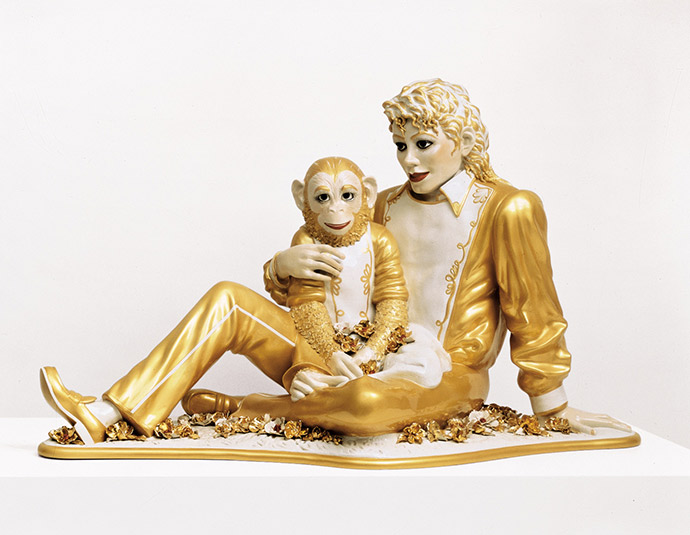
While Americans are doing what Americans do best with their grief — shopping — the French are analyzing and dissecting.
Americans purchased so many Michael Jackson albums last week that Billboard‘s top three spots are currently held by erstwhile Jackson classics. Bug-eyed and ga-ga with tabloid-fueled news shows, each of which continue to beam soundbites of the macabre into the atmosphere every fifteen minutes, we can’t seem to turn off the TV. Meanwhile the French are interpreting Michael Jackson’s existence through a fascinating semiotic lens.
The philosopher Bernard-Henri Levy wrote a Baudelaire-like analysis on Jackson’s life that was translated last week over on Huffington Post. It’s crazily titled The Three Stations of the Cross in Michael Jackson’s Calvary. And it’s a mesmerizing read; incantational with dramaturgical word play.
Too, there is a particularly fascinating quote related to Jackson that was lifted from Michel Houellebecq‘s book Platform that’s circulating the internet as well. I’ve garnered more insight about Jackson from these two gentleman’s short interpretations than a week’s worth of Nancy Grace and her yapping ilk.
Both men inadvertently address what happens when the sign Virgo has its fundamental impulse go awry. Thwarted or mutated, Virgo’s admirable call to purity becomes downright phantasmagoric.
Michael Jackson, as I’ve noted earlier, was a Sun conjunct Pluto Virgo. Unless given almost shamanic-like life training, Sun Pluto individuals approach existence from an impetus that most of us can barely fathom. And if we can’t understand it, imagine what it must be like for them to actually live it. Read more
Allen Ginsberg and the Mind
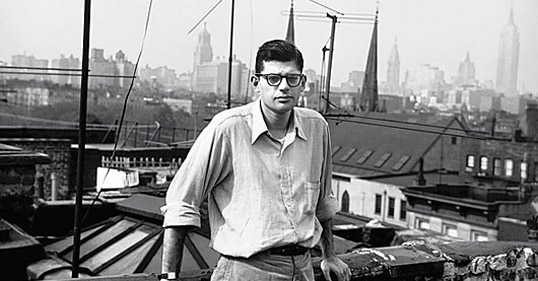
In the declaration below, Allen Ginsberg explains why it is vital to write.
I’ll let you read it for yourself, but add simply this. Similar to the how the ego is targeted as a pariah within the psyche’s field, the mind also is devalued and maligned as a function that sidetracks us — prevents focused attention. Especially in the Buddhist traditions, there’s too much oppression against the mind.
Ginsberg reminds us that the mind is a mirror. And when we remember this I think we’re aligned in the right way with our apparatus.
I discovered this entry today on a site I’ve been visiting, reading and enjoying very much lately, Luke Storms‘ Intense City.
Luke gathers together a diverse collection of material — and mixes it alongside his own writing. He keeps things fresh that way, and, similar to what I’ve tried to do with Astroinquiry, finds inspiration by placing his own thoughts alongside the material that is most influencing and informing him in the moment. I think you’ll discover that Luke’s site is a place you’ll want to visit again and again. Like repeating a favorite long walk on a spring (or winter) day — along with the familiar road, there’s always something new to discover.
“Proclamation of the actual mind, manifesting your mind, writing the mind, which goes back to Kerouac but also goes back to Milarepa, goes back to his original instructions: Don’t you trust your own mind? Why do you need a piece of paper?
So writing could be seen as “writing your mindâ€, observing your own mind, or observe what’s vivid coming to mind. For the purpose of relieving your own paranoia, and others’, revealing yourself and communicating to others. It is a blessing for other people if you can communicate and relieve their sense of isolation, confusion, bewilderment, and suffering by offering your own mind as a sample of what’s palpable, visible, and whatever little you’ve learned.
In other words, if you can show your mind it reminds people that they have got a mind. If you can catch yourself thinking, it reminds people that they can catch themselves thinking. If you have a vivid moment that’s more open and compassionate, it reminds people that they have those vivid moments.
By showing your mind as a mirror, you can make a mirror for other people to recognize their own minds and see familiarity and not feel that their minds are unworthy of affection or appreciation. It is appreciation of consciousness, appreciation of our own consciousness.â€
— Allen Ginsberg
